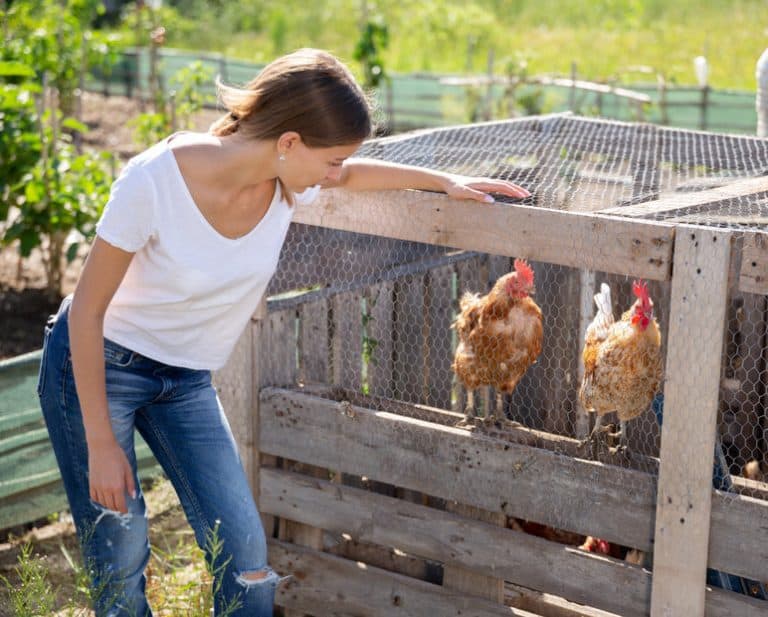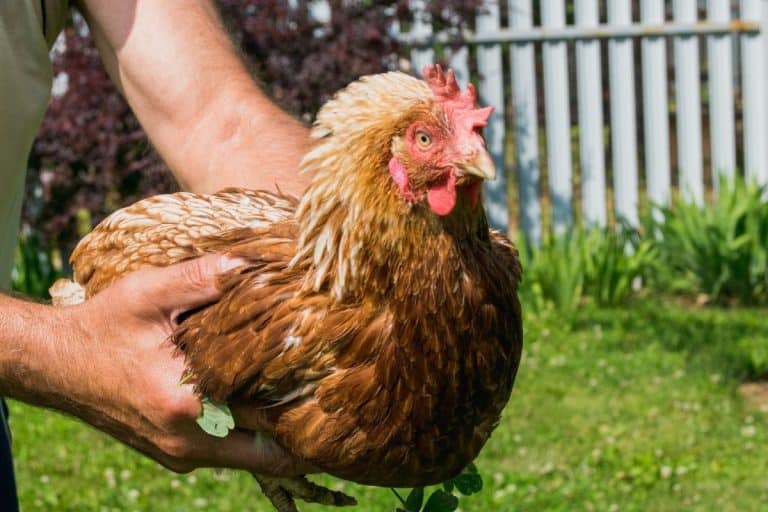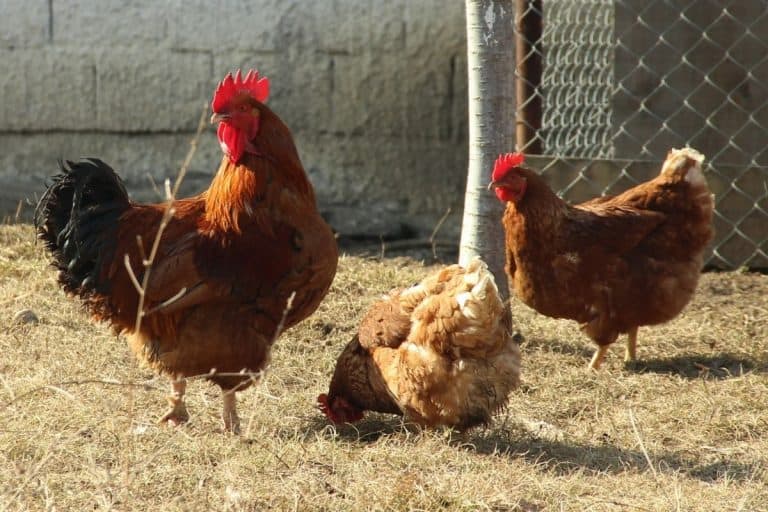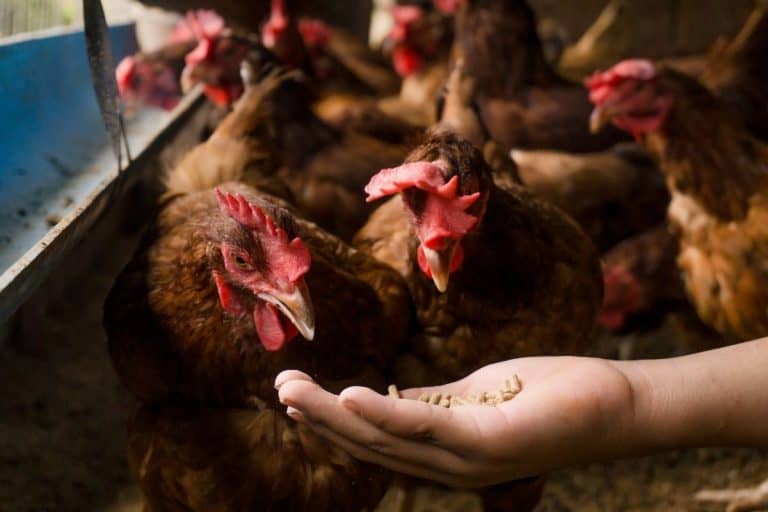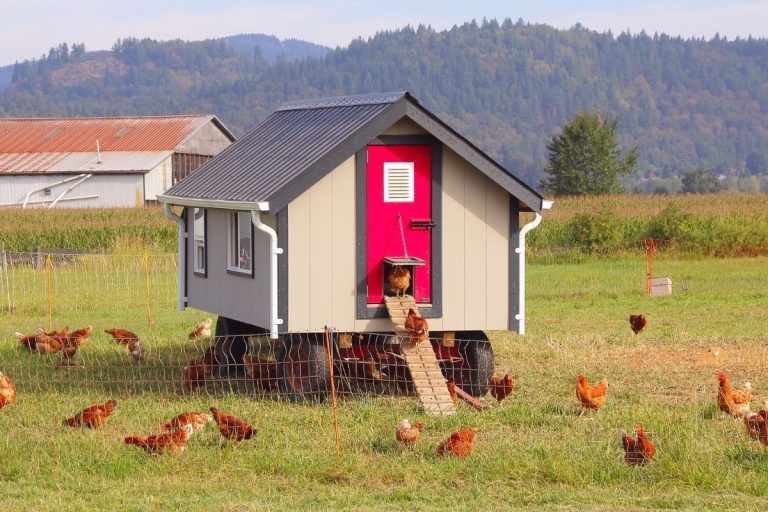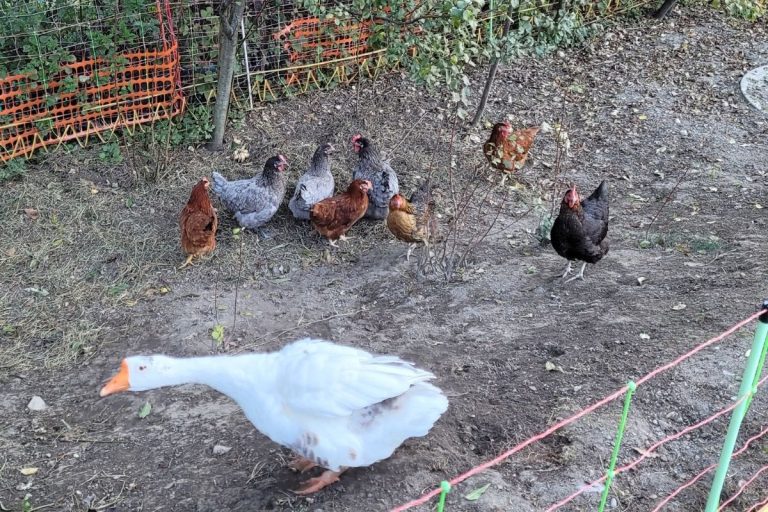Do Chickens Lay Eggs Year Around? (With seasonal tips)
Chickens are one of the most common domesticated birds that are kept by people all around the world. They are known for their ability to lay eggs, which makes them a popular choice for many people who are interested in raising their own food. But, can chickens lay eggs year-round?
In general, chickens will lay eggs for most of the year, but not 365 days. While chickens are known for their egg-laying abilities, several factors, such as the amount of daylight, breed and age might alter their capacity to lay eggs throughout the year.
Getting eggs from chickens is not as easy as it seems because of the seasonal impact on egg laying. Read on, as I will explain whether or not chickens can lay eggs year-round, what factors influence their egg production, and how to ensure that your chickens lay eggs in all seasons.
Hey chicken buddies: Quick heads-up before going further! I've put together a list of stuff I use and love for my flock. If you're curious about what keeps my hens happy, click here to find out.
Can Chickens Lay Eggs Year Around?
Chickens can lay eggs year around, but not consistently every day. In fact, no chicken breed lays eggs 365 days a year. There will be times when egg production will decrease or cease entirely, such as during the harsh winter months or when hens molt.

Following are some of the factors why chickens can’t lay eggs every day of the year:
Molting
Molting occurs when hens shed their old feathers and begin to grow new ones. During molting, all of a chicken’s nutrients and energy are redirected to feather growth, causing many hens to decrease egg production and some to stop laying eggs entirely.
Molting is referred to by some poultry experts as hens’ annual vacation from egg laying. Molting can last 8 to 12 weeks in chickens, and once the new feathers appear, egg production gradually increases.
During molting, I would suggest feeding chickens a diet high in protein, vitamins, and minerals so that feather growth is rapid and egg production can be boosted.
Breed
Some chicken breeds lay more eggs than others. The average hen will lay between 250 and 270 eggs per year. The Australorps chicken breed can produce approximately 320 eggs per year. The other top layers are Ancona, Favaucana, and Rhode Island Red. These breeds will lay five eggs per week on average.
Related: What Are The Most Common Breeds Of Chickens And Their Uses?
Age
Additionally, the age of the chicken can also affect its ability to lay eggs year-round, with younger birds typically laying more eggs than older birds.
Season
Chickens are known to be seasonal layers, which means that their egg-laying patterns are influenced by the changing seasons. This is because chickens require a certain amount of daylight to trigger their egg-laying hormones.
As the days get shorter in the fall and winter months, chickens will naturally lay fewer eggs or even stop laying altogether.
Wait, I have some recommendations for you!
Before you go any further, I want you to take a look at some of the recommendations I've handpicked for you. I think these are essential items you should have for your chickens flock. You can check them out and buy them directly from Amazon.
 |  | 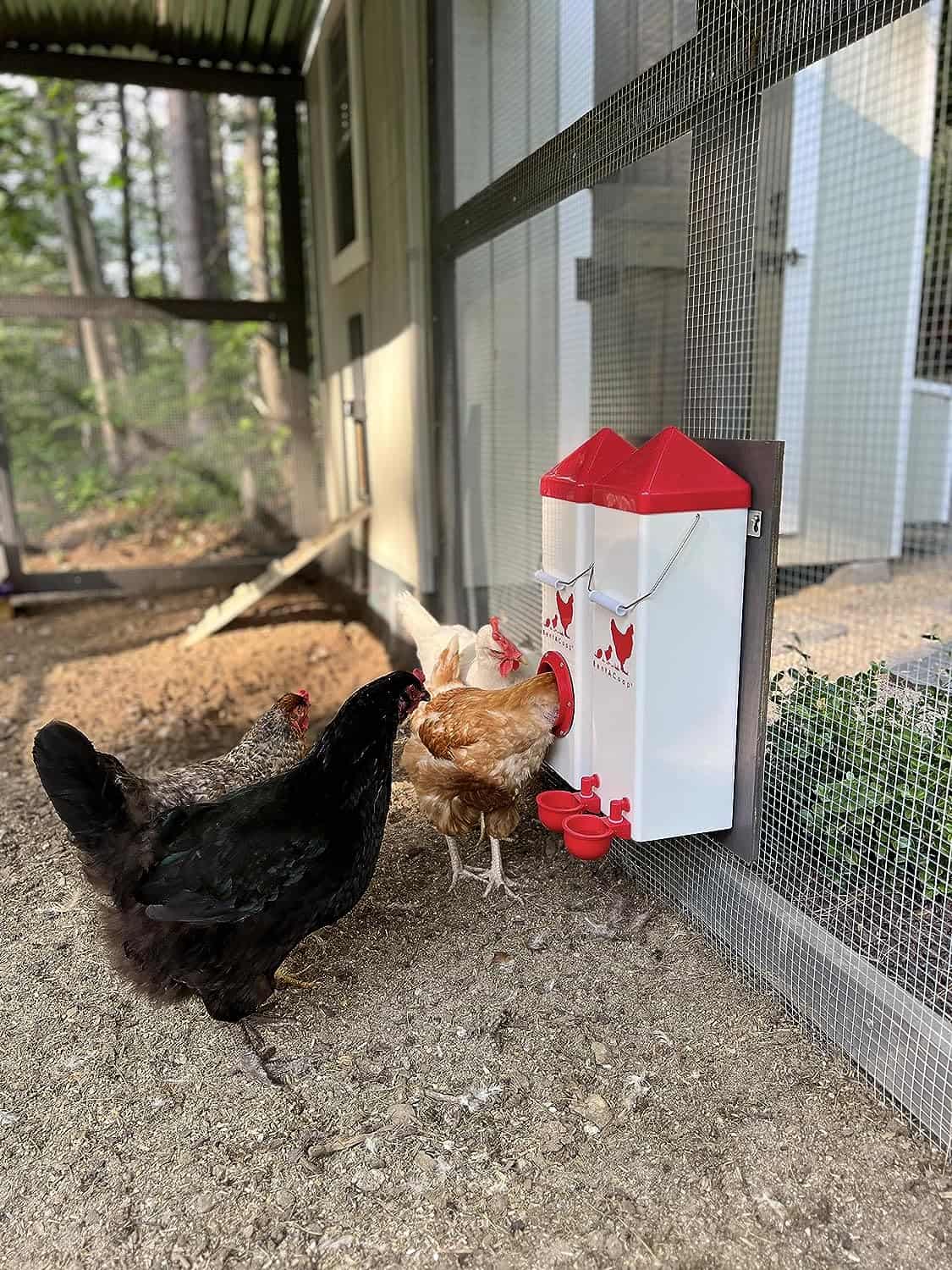 | 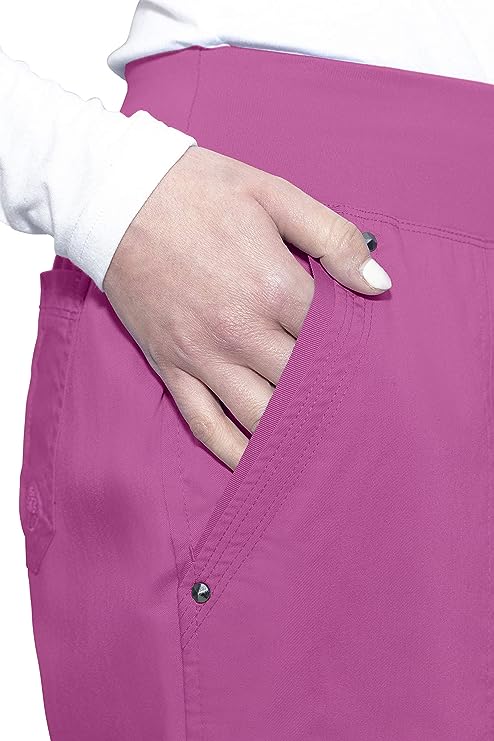 |
| Essential accessory for your coop | No more tripping over hoses! | Predator protection made easy | Comfort + style is possible |
How Seasonal Changes Affect Egg Laying in Chickens
Chickens can lay eggs year-round, but their egg production may be affected by seasonal changes, environmental factors, and their breed. In general, chickens need about 14-16 hours of daylight to lay eggs consistently.
During the winter months, when there are fewer daylight hours, chickens may lay fewer eggs or stop laying altogether. However, with proper care and management, chickens can continue to lay eggs throughout the year in all seasons.
Here are some challenges and solutions for each season when it comes to keeping chickens and maintaining their egg production:
Spring
In the spring, chickens tend to start laying more eggs as the daylight hours increase. However, there are some challenges that come with this season, including:
Cold weather:
In early spring, temperatures can still be cold and may affect the chickens’ egg production. I would recommend providing a warm and dry environment, such as a well-insulated coop with plenty of bedding, which can help keep chickens comfortable and encourage egg-laying.

Related: 11 Essentials You Need To Install In Your Chicken Coop
Predators:
As the weather warms up, predators such as raccoons and foxes may become more active. It’s important to reinforce the coop and run to keep predators out and protect the chickens and their eggs.
The constant fear of attack from a predator can put chickens under stress due to which there may be hormonal imbalances in the body of the chicken due to which egg production can be affected negatively.
Spring Cleaning:
As the weather begins to warm up, it is critical to clean the coop thoroughly. This is an excellent time to clean out nesting boxes and roosts, as well as muck and refresh the run. I would also advise removing any droppings or loose feed that may have accumulated over the winter months.
By following these steps, you can ensure that your chickens have a clean and healthy living environment free of parasites, promoting the overall well-being of the chickens and thus improving egg production.
Discourage Broodiness:
With the arrival of spring comes the desire to reproduce, and even infertile pure chicken breeds may exhibit signs of broodiness.
Because broodiness can reduce egg production, it’s critical to collect eggs regularly so that hens don’t sit on them. I would also recommend encouraging chickens to leave their nesting boxes and roam freely can also be beneficial.
Summer
Summer can be a great season for egg-laying, but it also comes with some challenges:
Heat:
High temperatures can be stressful for chickens and may cause them to stop laying eggs. Providing plenty of shade, ventilation, and fresh water can help keep chickens cool and comfortable.
On particularly hot days you can place a tray of water in the coop so the chickens can take a dip and stay cool. Offering frozen veggies and fruits such as cucumbers and watermelons will also help keep chickens cool and will provide them with plenty of nutrients and aid in egg production.
Pests:
Summer is a prime time for pests such as flies and mites. Regular cleaning of the coop and run, along with the use of pest-control measures, can help keep these pests under control. Pest can cause a lot of stress which can lead to lower egg yields so it’s essential to keep them in check.
Fall
In the fall, the days begin to get shorter, which can impact egg production. Other challenges may include:
Molting:
Many chickens molt in the fall, which means they lose their feathers and stop laying eggs for a while.
I would suggest providing a high-protein diet and plenty of vitamins and minerals that can help support chickens during this time. Once the feathers of the hens regrow their egg production will return to normal.
Cold weather:
As temperatures start to drop, chickens may need additional warmth to stay comfortable and continue laying eggs. Providing a heat source, such as a heat lamp or heated waterer, can help.
Winter
Winter can be the most challenging season for egg-laying, but with the right care, chickens can continue to lay eggs:
Short days:
With fewer daylight hours, chickens may stop laying eggs altogether or lay fewer eggs. Providing supplemental lighting in the coop can help stimulate egg production.
The scientific explanation for the effect of short days on egg laying in chickens is the role of light in regulating the hormonal system that controls egg production. The pineal gland in the chicken’s body, in particular, is in charge of producing melatonin, a hormone that helps regulate the bird’s circadian rhythm and response to light.
As the days shorten and the amount of daylight reduces, the pineal gland produces more melatonin, which inhibits the production of GnRH (hormone) and thus reduces the production of FSH and LH. The ovaries are suppressed when these hormones are reduced. This can lead to a decrease in egg production or even the stoppage of egg laying entirely.
By extending the amount of daylight to which the chickens are exposed with artificial lighting, chicken owners can help to reduce melatonin production while stimulating the production of GnRH, FSH, and LH. As a result, during the shorter days of the year, egg production can be maintained or increased.
Cold weather:
Extreme cold can be dangerous for chickens and may cause frostbite. Providing plenty of insulation, ventilation, and a heat source can help keep chickens warm and comfortable so they can lay eggs with ease.
Water:
Water can freeze in the winter, so it’s important to provide a heated water source to ensure that chickens stay hydrated. An egg white is 90% water so chickens need plenty of water to produce eggs and maintain egg production.
Factors Affecting Egg Laying in Chickens Throughout the Year
Following is a list of factors that can affect egg laying in chickens throughout a year:
- Seasonal changes
- Natural light availability
- Age of the hen
- Breed of the chicken
- Molting
- Diet
How Many Eggs Can Chickens Lay In A Year?
An average hen can lay between 250 and 270 eggs per year. However, when it comes to prolific egg layers, Australorps, Anconas, White Leghorns, and Rhode Island Reds are at the top and can lay up to 300 eggs per year.
Egg production is heavily influenced by chicken genetics, as some breeds lay more eggs than others. However, by improving a chicken’s diet and living conditions, as well as providing it with enough light, you can increase its yearly egg production.
Related articles you might be interested in:
- When Is The Best Time To Breed Chickens? +Tips for each season
- Why Do Chickens Lay Eggs Every Day?
- What To Do With An Old Hen Who Has Stopped Laying Eggs


